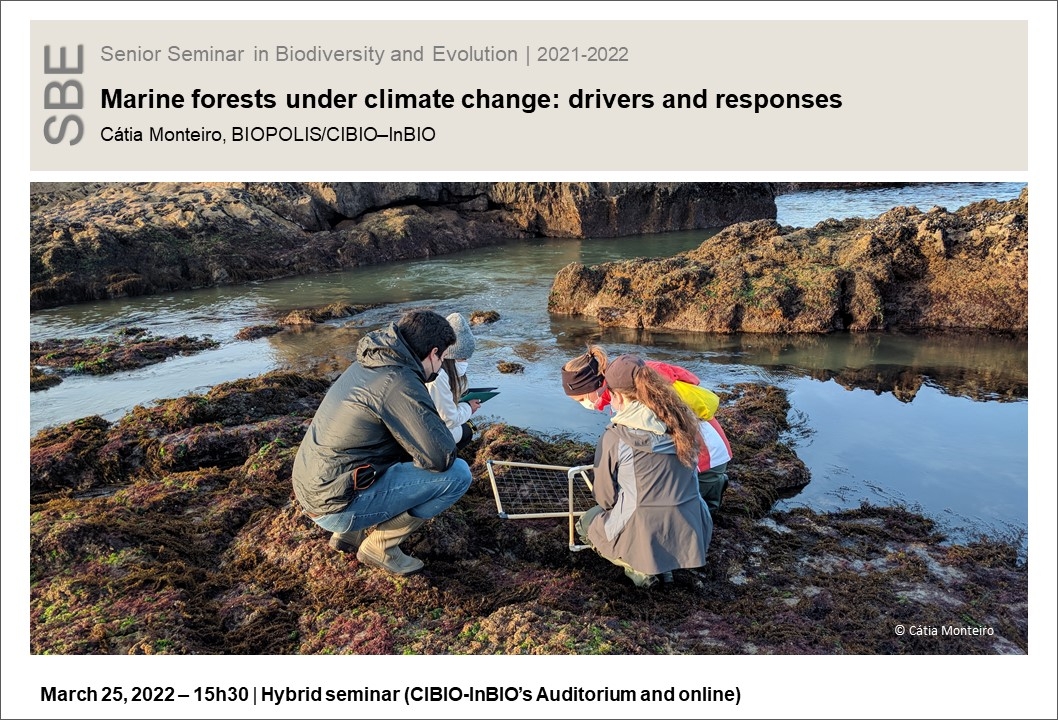Marine forests under climate change: drivers and responses
25 Mar 2022 - Cátia Monteiro, BIOPOLIS/CIBIO–InBIO | 15h30

SENIOR SEMINAR IN BIODIVERSITY AND EVOLUTION
Marine forests, which include canopy-forming macroalgae, are increasingly recognized as key to climate mitigation and adaptation. Marine forests dominate temperate coastal regions, promote the development and persistence of ecological communities by modifying the structure and physical conditions of their habitat and by supporting food-webs. These canopy-forming species are increasingly threatened by a multitude of anthropogenic stressors, leading to local declines, extinctions and associated biodiversity loss. In this talk, I will first introduce you to my doctorate work on the sugar kelp Saccharina latissima and the many methods I applied to evaluate its response to climate change. I have explored physiological and transcriptomic responses of the sugar kelp to environmental changes, focusing on different populations, life stages, and stressors (temperature and salinity). Then, I will move to my current Postdoctoral work (MarChange group) on climate change impacts on intertidal biodiversity and biogeography and its relationships with temperature change. Recently, we demonstrated how geographically close regions in the Iberia Peninsula display significantly different macroalgae communities probably driven by regional and local variability. In addition, by recovering historical data and revisiting the same locations, we were able to track recent shifts in the distributional range of several macroalgae, which for some correspond to a retreat of hundreds of kilometers in a mere 15 years.
Cátia Monteiro is a marine biologist interested in the responses of marine macroalgae to environmental stress. More specifically, how they acclimate to local heterogeneity and how are they likely to endure ongoing climate change. After an Erasmus Mundus master’s in Marine Biodiversity and Conservation in 2014 that took her through the Universities of Ghent, Oviedo, and Algarve, and an international double degree doctorate in 2020 from the Universities of Bremen, Germany and Sorbonne, France, she is back in Portugal and working as a postdoc at CIBIO. During her PhD, she applied several methods ranging from physiological measurements to gene expression analysis in brown macroalgae. Her work at CIBIO focuses on the biogeography of rocky shores communities, its induced changes due to global warming, and how these are modulated by their microhabitat.
[Host: Fernando P. Lima, Marine Ecology, Diversity and Change - MarChange]